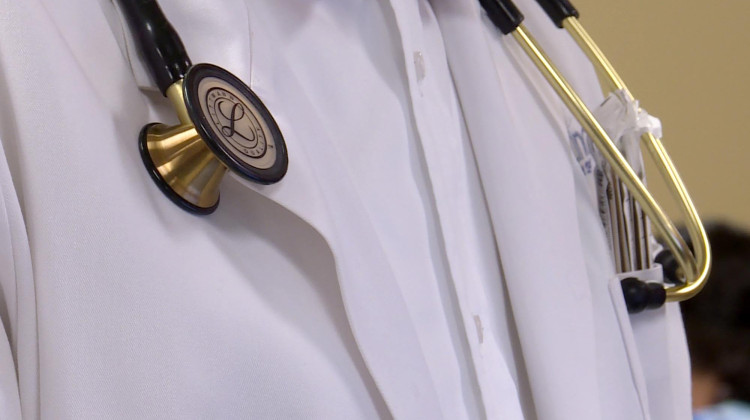
Ossabaw pigs, like the one pictured here in its pen at Mount Vernon in 2014, have a similar physiology to humans.
Tim Evanson/CC-BY-SA-2.0About 11 percent of Hoosiers have diabetes and an estimated one-third of the state has pre-diabetes. A new start-up company will breed a rare type of pig used to study diabetes treatments and look for a cure.
The new business partnership between Purdue University and Indiana University School of Medicine scientists will produce the Ossabaw pigs which are predisposed to diabetes.
Professor Mike Sturek first heard about the miniature pigs in his research.
“I kept reading and it said they developed gross obesity and Type 2 diabetes and I thought perfect, those are the pigs we need,” says Sturek.
The pigs have a similar physiology to humans. They are also a the right scale to compare with human bodies.
They come from an isolated island off the coast of Georgia, and they develop pre-diabetes after gorging themselves before winter. When they lose the weight, they lose their pre-diabetes – just like humans says Sturek.
“One of the first lines of therapy for anybody with adult onset or pre-diabetes is be active, lose weight and it’s really quite effective,” he says.
The group has provided more than 140 pigs to scientists for research and they have been the subject of about 100 research papers already.
Mike Sturek has worked with Ossabaw pigs for more than a decade and says their pancreas cells behave a lot like human cells.
“And then unfortunately they kind of burn out, so the cells burn out and they just become dysfunctional and that also occurs in Type 1 diabetes,” says Sturek.
CorVus Biomedical will operate from a new facility in west central Indiana. The company will provide scientists from all over the world access to the animals for research projects.
 DONATE
DONATE








 Support WFYI. We can't do it without you.
Support WFYI. We can't do it without you.